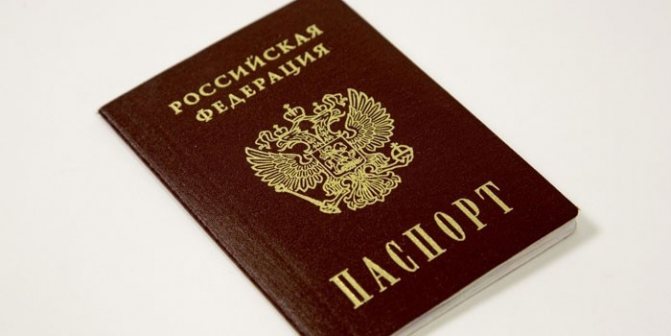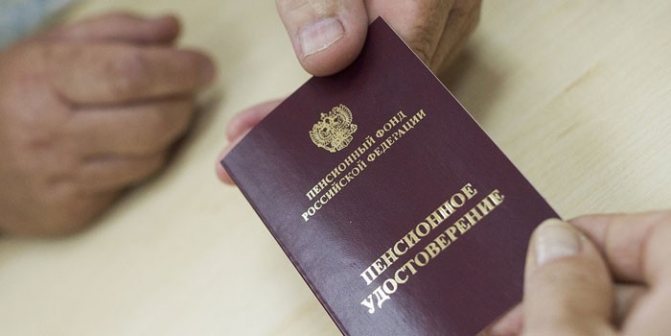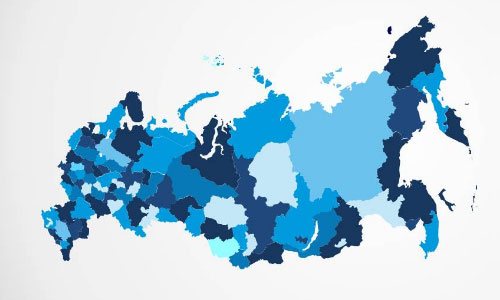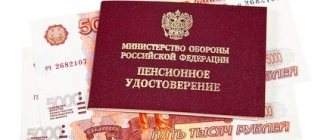Citizens living in remote areas of the Far North receive not only additional increases in salary and length of service, but also increased, “northern” pensions. When planning a move to warmer regions, the first question that arises for such a pensioner is whether the payments he earned will remain with him when he moves?
In addition to the main issue, there are also a number of secondary ones. For example, is it possible to increase the size of the northern pension? Will there be any additional benefits in other regions?
Is the northern pension preserved when moving to another region of Russia?
The main law stipulating the payment of pensions to Russian citizens is 166-FZ. The federal law describes the general procedure for calculating and issuing pension payments. The “northern” features are described in more detail by the following subparagraphs:
- clause 7, establishing basic payments for citizens in all regions;
- paragraph 14, which describes the issues of determining the northern pension when moving.
Also, pension benefits for residents of the North are specified in Federal Law No. 400-FZ.
“Northern” pensions: regulatory regulation
Now in the Russian Federation there are 3 main laws in accordance with which pensions are calculated:
- Law “On Insurance Pensions” dated December 28, 2013 No. 400-FZ (its provisions apply to citizens retiring after January 1, 2015);
- Law “On Labor Pensions” dated December 17, 2001 No. 173-FZ (from January 1, 2015 is valid only in terms of the provisions governing the calculation and payment of pensions that were assigned before January 1, 2015, provided that the relevant norms do not contradict the Federal Law “On Insurance Pensions” ");
- Law “On State Pension Security” dated December 15, 2001 No. 166-FZ (regulates the calculation of pensions for civil servants and other categories of citizens of the Russian Federation who are on state support).
It can be noted that in accordance with the provisions of Law No. 173-FZ, Russian pensions were calculated until 01/01/2015. Now pensioners of the Russian Federation, including residents of the North, receive a pension calculated primarily in the manner approved by the new regulatory act - Law No. 400-FZ.
The provisions of Law No. 173-FZ apply only if this is required for the purpose of calculating pensions under the new law. But when calculating specifically northern pensions, they are practically not taken into account.
Let's study the features of calculating northern pensions, taking into account the provisions of these regulations - the current law No. 400-FZ, as well as law No. 166-FZ.
Re-registration procedure
When the place of residence within Russia changes, the procedure for re-registration of pension payments consists of the following steps:
- Contact the territorial branch of the Pension Fund of the Russian Federation at your new place of residence. This is done in order to forward the payment file to the citizen’s new place of residence.
- Make a corresponding statement. There, indicate your personal information, new residential address and select the delivery method for the security.
- The department employee makes a note about accepting the papers. After this, they are sent for review.
- Wait for a decision on the issue. If the outcome is positive, start receiving your pension using the chosen method. If you refuse, get a written explanation.
What documents are required
A pension based on northern experience is assigned when moving to another region upon presentation of the following documents:
- passport;
- SNILS;
- employment history;
- other documents that are necessary to establish additional circumstances, for example, birth certificates of children, certificates and extracts from orders to confirm the missing northern experience.
Please note that the applicant can submit documents independently or through a legal representative.
In the latter case, a power of attorney certified by a notary is required. You can submit your application in other ways:
- by sending by registered mail;
- by filling out a special form on the Pension Fund website through your personal account;
- by contacting the Multifunctional Center.

Recalculation terms
Thanks to the introduction of electronic document management, the time frame for considering an application, forwarding a payment file, and assigning a pension when a citizen moves to another area has been significantly reduced. The time allotted for procedures is strictly regulated:
- Request a case at the PRF branch at the previous place of residence - within 1 business day from the date of registration of the application.
- Preparation and forwarding of the pension file takes from 1 to 3 days from the date of receipt of the request.
- Acceptance of a citizen for registration at a new place of residence, verification of provided documents and previously made accruals - 2 days.
After all the procedures have been completed, an order to extend the pension payment is issued. Please note that even when transferring security to the card, transfer of the pension file is necessary to receive all benefits and payments, taking into account regional legislation.
- How to connect digital television to an old TV
- Goat quilling
- 5 foods you shouldn't eat if you have a cold
Early retirement in the North
First of all, it makes sense to note that citizens who worked in the North have the opportunity to retire much earlier than Russians working in more southern regions.
Thus, men who have a total length of service of 25 years and have worked in the Far North for 15 years or in regions equivalent to it for 20 years can retire at 55 years of age. Women have the right to retire at age 50, provided they have a total work experience of 20 years and the same length of work in the North as men. In turn, men who worked in more southern regions retire at 60, and women at 55.
If a man or woman has worked in the Far North as a reindeer herder, fisherman or hunter, amounting to 25 and 20 years, respectively, for each gender, they have the right to retire another 5 years earlier than the ages indicated above.
Raising the retirement age will also affect workers in the Far North. The transition period to raise the retirement age will last the same as for all residents of the Russian Federation from 2020 to 2028. Below is a table of retirement in connection with innovations:

Read more about raising the retirement age here.
Find out about the nuances of assigning pensions to northerners in ConsultantPlus. If you do not have access to the K+ system, get a trial online access for free.
Pension changes in 2021 for northerners

The pension reform, which started in 2020, also affects northerners. Some of the changes will occur in 2021. Citizens are also subject to a gradual increase in the age at which benefits can be issued. As a result of the reforms, by 2023 the retirement age for northerners will increase by 5 years – to 55 for women and to 60 for men. In 2021, these indicators will be 53 and 58 years.
The increase is carried out according to the following scheme:
- Every year, from 2020, growth is recorded for 1 year, until the final indicators are reached by 2023;
- In 2020 and 2020, residents of the north could apply for benefits six months earlier than determined by the current changes. In 2020, northerners could retire at 50.5 years (for women) and 55.5 years (for men). In 2020 - at 51.5 and 56.5 years. In 2021, this privilege will no longer apply. Those. growth will occur in 1-year increments.
Innovations regarding the retirement age in 2021 will not affect 2 groups of northerners:
- Women with two or more children, with a total work experience of 20 years, 12 of which in the North or 17 in equivalent areas. According to clause 2, part 1 of Art. 32 FZ-400 they continue to have the right to receive benefits early, i.e. from 50 years old.
- Citizens living in the specified areas and working as reindeer herders, fishermen, hunters over 20 years (for women) and 25 years (for men). If they have sufficient experience, they can receive payments from the age of 45 and 50.
Northern experience as a preference when assigning a pension
A person’s work experience in the North may give him the right to retire earlier even if the specified indicators of length of service are not achieved, but are commensurate with them.
If a citizen has worked at the CS for at least 7 years and 6 months, then he has the right to retire earlier, based on the fact that his retirement age decreases by 4 months for each year worked in the Far North. Moreover, each year of work in areas equated to the KS corresponds to 9 months of labor activity in the Far North.
In general, the length of service, which is 15 years when working at a compressor station or 20 years in areas that are equivalent to it, reduces a person’s retirement age by 5 years for most categories of workers who have grounds for retirement. For example, those categories that are specified in paragraphs. 1–10, 16–18 art. 30 of Law No. 400-FZ.
Let us now consider the basic principles of calculating northern pensions.
Law No. 400-FZ (“On Insurance Pensions”): northern supplement to a fixed payment
The pension according to Law No. 400-FZ consists of the following main components:
- insurance pension (calculated using a complex formula using individual pension coefficients and indicators of their value);
- fixed payment (which is established in accordance with paragraph 1 of Article 16 of Law No. 400-FZ).
The size of the insurance pension does not directly depend on whether a person worked in the North or not.
In turn, in accordance with paragraph 4 of Art. 17 of the Law “On Insurance Pensions” dated December 28, 2013 No. 400-FZ, the following persons have the right to receive a fixed payment increased by 50%:
- men who have 25 years of experience or more and have worked for 15 years or more in the Far North;
- women with 20 years of experience or more and who have worked for 15 years or more in the CS.
The current fixed payment amount is RUB 4,982. 90 kopecks per month (Clause 1, Article 16 of Law No. 400-FZ).
It turns out that the fixed pension payment to citizens who worked in the Far North and have the above-mentioned length of service becomes equal to 7,474 rubles. 35 kopecks (RUB 4,982.90 + 50%). Thus, the pension of a citizen who worked at the CS is, in general, greater than the pension of a citizen who worked further south, by 2,491 rubles. 45 kopecks
If pension recipients who worked in the Far North have disabled dependent family members, or if recipients of the corresponding pension are over 80 years old or if they have a 1st group disability, an increase in the fixed payment on the grounds specified in paragraphs. 1–3 tbsp. 17 of Law No. 385-FZ, is supplemented by additional payments in the amount of 50% of the corresponding increase.
So, if a person who worked at a compressor station is 80 years old, then he:
- firstly, he receives a fixed payment increased by 2,491 rubles. 45 kopecks regarding the southern pension;
- secondly, he receives a 100% additional payment to the fixed payment - in the amount of 4,982 rubles. 90 kopecks (Clause 1, Article 17 of Law No. 385-FZ);
- thirdly, he receives an additional payment to the specified 100% increase in the fixed payment in the amount of 50%, that is, 2,491 rubles. 45 kopecks
In accordance with paragraph 5 of Art. 17 of Law No. 400-FZ, a fixed payment as an independent element of a pension (that is, an indicator enshrined in Law No. 385-FZ), as well as an element of calculating the northern pension, taking into account the provisions of paragraphs. 1–3 tbsp. 17 of Law No. 385-FZ increases in similar cases by 30% when calculating pensions for citizens of the same age and gender as indicated above, as well as those with similar length of service - if they worked in regions that are equivalent to the KS for 20 years and more.
Is the northern pension preserved when moving?
The legislation establishes that a citizen, when changing his place of residence, is obliged to notify the Pension Fund about this. This is connected not only with the transfer of the pensioner’s payment file, but also with the peculiarities of calculating pension payments for different categories of citizens. When you change your place of residence, the amount of the northern pension may change:
- Will increase or decrease if the regional coefficient is applied to the pensioner’s pension.
- It will not change if the citizen has the necessary experience in difficult climatic conditions and when calculating security, the fixed amount is calculated at an increased rate.
Important: regardless of the place of actual residence, for citizens who are disabled in group 1, have reached the age of 80, or have a minor child or other dependents in their care, the fixed payment is calculated at an increased rate.
Supplements for honorary titles for military and civilians (Hero of Labor, war veteran) are also retained.
For residents of RKS and equivalent territories
Depending on the place of residence, a certain regional coefficient is applied to the pension. It extends to territories belonging to the Far North (FN) and equivalent areas (ELA). The size of the coefficient ranges from 1.15 to 2, so depending on the region of residence, the amount of security will be different.
Please note that the regional coefficient is established not by subject, but by climatic territory. For example, for Yakutia it varies from 1.4 to 2.0. Here are some more examples:
| Region | Coefficient |
| Chukotka Autonomous Okrug | 2,0 |
| Magadan Region | 1,7 |
| Norilsk | 1,8 |
| Vorkuta | 1,6 |
| Nenets Autonomous Okrug | 1,5 |
| Yamalo-Nenets Autonomous Okrug | 1,5 |
| Severodvinsk | 1,4 |
| Severobaykalsk | 1,3 |
| Komsomolsk-on-Amur | 1,2 |
- Do-it-yourself paths in the country
- The cheapest package tours in Russia
- How to disable subscriptions on Megafon
Maintaining a pension based on northern service
For pensioners - former employees of RKS and PKS, who have northern and insurance experience of at least the standard value that gives the right to receive a northern pension, the amount of payments does not change when moving. This is due to the fact that the citizen receives increased security by increasing the basic amount of the insurance pension. Required standards:
| Recipients | Experience, years | ||
| General | RKS | PKS | |
| Men | 25 | 15 | 20 |
| Women | 20 | 15 | 20 |
| Women who gave birth and raised at least two children up to 8 years of age | 20 | 12 | 17 |
The retirement age in the north for citizens with full preferential service until the end of 2020 will be 55 years for men and 50 for women. From January 1, 2020, it will begin to increase gradually until it reaches 60 for men and 55 for women by 2028. Citizens who have completed the required length of service in hazardous conditions according to lists 1 and 2 will, as before, go on vacation according to the old rules. For them, the age limit does not change.
Please note that when moving to another region, the accrued pension should not be lower than the subsistence level established for the region where the pensioner decided to settle.
If the amount is below the minimum monthly allowance, the recipient is entitled to an additional payment:
- from the funds of the regional budget through social protection, if the minimum wage for the region is greater than the federal value (for example, Moscow, St. Petersburg, Magadan);
- from federal budget funds, if the PM in the region is less than the federal value (Belgorod Region, Stavropol Territory).

Increased pension for residents of the North using a coefficient
In accordance with paragraph 9 of Art. 17 of Law No. 400-FZ to receive an increased fixed payment under clause 1 of Art. 16 of Law No. 400-FZ is entitled to receive citizens living in the KS, who have the right to a pension, but who do not have experience working in the Far North and in areas that are equivalent to it. But in this case, instead of premiums, the regional coefficient established by law is applied.
Similarly, if a resident of the North is 80 years old or if he has a disability of the 1st group or if he has dependent persons who are unable to work, he receives additional payments guaranteed by paragraphs. 1–3 tbsp. 17 of Law No. 400-FZ, which are also increased by the regional coefficient.
When a person moves to another region of the Constitutional Court or a territory equivalent to it, other coefficients may be applied - those determined for the relevant area (clause 10 of Article 17 of Law No. 400-FZ). Now the coefficients in question are those given in the information letter of the Department for Pensions of the Ministry of Labor of the Russian Federation dated 06/09/2003 No. 1199-16.
So, for example, in Chukotka the corresponding coefficient is 2. Accordingly, the fixed payment to his pension will generally be 9,965 rubles. 80 kop. (4,982.90 × 2).
The procedure by which “northern” additional payments to fixed payments are calculated and paid, established by paragraphs. 9, 10 tbsp. 17 of Law No. 400-FZ, is regulated in more detail by Decree of the Government of the Russian Federation dated March 18, 2015 No. 249.
How is the regional pension coefficient calculated?
The regional coefficient has a significant impact on the calculation of pensions for persons living and working in the Far North and areas equivalent to them. Additional payment for labor when forming a pension payment is accrued if the employee:
- worked in difficult conditions for at least 15 years (with breaks or continuously - the calculation is made in calendar years based on the total number of years worked);
- has an insurance experience of 25 years (for the male population).
An additional payment to the pension will be accrued if the citizen has lived and worked in the conditions of the KS and equivalent to them since January 2002. But the benefit will be valid as long as the pensioner lives in the specified territories. Changing living conditions (place of residence) to more favorable ones will almost always lead to either a reduction in the amount of the surcharge or its complete abolition.
Attention! The regional coefficients in force for 2020 are not legally established at the federal level. Existing standards are applied by executive authorities operating on the territory of the KS and localities equivalent to them in terms of complexity of living and work, independently

Calculation of the northern pension by choice: coefficient or bonus?
If a person can receive additional payments to fixed payments to an insurance pension on 2 grounds (that is, firstly, he has “northern” experience, and secondly, he lives in the North), then he must independently choose one of them (clause 13, Article 17 of Law No. 400-FZ). That is, decide whether he will receive a pension taking into account the premiums established by Law No. 400-FZ, or using regional coefficients.
The main criterion that in this case makes sense to focus on is the value of the regional coefficient actually established in its region. If it is greater than the applicable increase in the fixed payment fixed in the provisions of Art. 17 of Law No. 400-FZ, it makes sense to choose a scheme according to which the pension is calculated taking into account the corresponding coefficient.
Northern pension: nuances of calculation
So, the northern pension is a pension that can be increased relative to the standard one on one of 2 grounds (at the citizen’s choice):
- application of bonuses to the fixed payment (with sufficient work experience in the North);
- multiplying the fixed payment by the regional coefficient (if the person lives in the North).
It can be noted that during the period of Law No. 173-FZ, the northern pension was calculated according to similar principles: bonuses and coefficients were calculated on the fixed amount of the insurance part of the labor pension (some kind of analogue of the fixed payment under Law No. 400-FZ).
Thus, the higher the fixed benefit, the higher the northern pension. Other components of the pension formula - be it the individual coefficient or indicators of its value - do not change, based on the fact that the person has work experience in the North.
The fixed payment, the main indicator for calculating the northern pension, should generally be indexed in relation to inflation.
When is the regional coefficient applied?
The use of the coefficient is relevant when calculating the following types of payments:
- Pensions: old age, disability, long service;
- Determination of the minimum wage for a specific region;
- Deduction of insurance contributions to the Pension Fund;
- Supplements for working in harmful or dangerous conditions;
- Bonuses, incentives, compensation;
- Basic salary of employees.
Important! The employer independently calculates remuneration taking into account the coefficient. Employees should not contact them to apply allowances. The same applies to pensions, but here benefits are assigned in the divisions of the Pension Fund.
What does the regional coefficient not apply to?
There are several types of payments for which the use of a multiplying factor is irrelevant:
- Vacation pay. They are calculated from average earnings, where the coefficient is already included, so it is not used when calculating vacation pay;
- Material aid. The employer is not obliged to provide it, but if this is provided for by the local acts of the institution, the coefficient is not applied when calculating such assistance, unless the rules provide otherwise;
- One-time bonuses. They are determined by employers independently and paid solely at their discretion;
- Payment of travel expenses for an employee sent to a region where there is no multiplying factor;
- The accrual of an allowance for work in the North - it already implies monetary compensation for work in special conditions, and cannot be increased by applying a coefficient.
It is worth considering that the coefficient applies to all citizens, regardless of the form of activity of the enterprises in which they work or have worked. For example, individual entrepreneurs must calculate payments according to the same rules as legal entities. As for pensioners, the calculation procedure is the same everywhere for them. The only difference is in the size of the coefficient: in one region it may be higher, in another – lower.
Do I need to confirm my right to a northern pension?
If a citizen moves to the northern region, where a higher coefficient for the fixed pension payment has been established, then he will be able to obtain the right to the additional payment that arises only if he contacts the territorial division of the Pension Fund. The pension, taking into account the recalculation, will be accrued from the 1st day of the month following the date when the application to the Pension Fund was made (subclause 2, clause 1, article 23 of Law No. 400-FZ).
If a person moves to a region that does not belong to the territories of the Constitutional Court or areas that are equivalent to it, then his pension must be recalculated taking into account the fact that the legal grounds for applying the increasing coefficient disappear (clause 9 of Article 23 of Law No. 400-FZ) . The law establishes the following criteria for recognizing the relevant move as valid:
- registration of a citizen was carried out in a settlement outside the North (subparagraph “c” of paragraph 10 of article 23 of law No. 400-FZ);
- an application for the issuance of a pension file has been submitted to the representative office of the Pension Fund in the relevant locality;
- an application for relocation has been submitted to the Pension Fund office;
- The fund recorded non-compliance with the procedures for confirming registration in the North in the manner established by clause 19 of Art. 21 Law No. 400-FZ;
- The fund has recorded non-compliance with the procedures for confirming registration in the North in the manner established by clause 5 of the rules established by Resolution No. 249.
It may be noted that according to the provisions of Art. 23 of Law No. 400-FZ, a move can also be confirmed by the fact that a citizen has been deregistered in a northern settlement - due to the expiration of the registration period or at the request of the pension recipient himself (subparagraphs “a”, “b”, paragraph 10 of Article 23 of the law No. 400-FZ). However, the Supreme Court of the Russian Federation, by decision of October 7, 2015 No. AKPI 15-859, recognized the relevant subparagraphs of paragraph 10 of Art. 23, as well as the corresponding provisions of paragraph 11 of Art. 23 inactive.
Case No. not determined
Case (number)
DECISION IN THE NAME OF THE RUSSIAN FEDERATION
(address) "(date)
Morozovsky District Court of the Rostov Region composed of: presiding judge Romanov S.A.,
with:
representative of the plaintiff - military commissariat (address) by power of attorney L,
defendant N,
defendant F,
with Secretary B,
Having considered in open court a civil case regarding the claim of the Military Commissariat (address) to N and F - “On the recovery of an excessively received pension amount”,
installed:
The court was addressed to (address) by the Military Commissariat (address), which indicated that, on the basis of the current legislation, pensions for persons who served in military service are calculated in accordance with the Law of the Russian Federation dated (date) of the year “On pension provision for persons who served in military service, service in internal affairs bodies, the State Fire Service, authorities for control over the circulation of narcotic drugs and psychotropic substances, institutions and bodies of the penal system, and their families.”
Payment of pensions provided for by this Law is made, at the place of residence or place of stay of pensioners within the territory of the Russian Federation, by the pension authorities of the federal executive authorities specified in Article 11 of this Law, through the relevant institutions (branches) of the Savings Bank of the Russian Federation by crediting the corresponding amounts to deposits or transfer of corresponding amounts through federal postal organizations. The procedure for paying pensions is determined by agreements concluded between the relevant federal bodies - the executive branch and the Savings Bank of the Russian Federation.
On (date), the military commissariat (address) received the pension file of a pensioner from the Ministry of Defense N. An application for extension of the pension was written by the defendant (date). To the Military Commissar (address).
When extending his pension, it turned out that the pensioner had been registered in (address) region since (date). and at the same time lived in both (address) and (address) region, where he received a pension with a regional coefficient. The defendant concealed this fact that he deregistered at (address), the pension was paid without his registration at (address) on (date). This resulted in an overpayment of pension in the amount of 146,990 rubles. 72 kopecks.
F’s pension file was received on (date), the application for pension extension was written on (date). To the Military Commissar (address). When extending her pension, it turned out that the pensioner had been registered in (address) region since (date). and at the same time lived in both (address) and (address) region, where she received a pension with a regional coefficient. The defendant hid this fact that she deregistered at (address), pension
was paid without registration to (address) on (date). This resulted in an overpayment of pension in the amount of 119,585 rubles. 91 kopecks.
In the explanatory written N (date) g. addressed to the Military Commissioner (address), an explanation was given that the defendant was registered permanently from (date) at (address) to the present, during this period he periodically traveled and temporarily resided at (address).
According to the departure address sheets received by the Migration Service Office at (address) Interdistrict Department at (address) on (date). from PVS (address) ROVD (address), N (date) deregistered in the village (address) - (date) and F (date) deregistered - (date) But the defendants did not report this to the Military Commissariat (address) and hid this fact.
In accordance with the pension legislation of the Russian Federation, a pensioner is obliged to inform the pension department of the military commissariat at the place of residence about leaving for permanent residence in another region or state, as well as to Sberbank of Russia at the place of receipt of the pension, but the defendants did not do this. They continued to receive a pension with a regional coefficient at (address), while living in (address) region, where this regional coefficient is not maintained.
In accordance with part one of Article 48 of the Law of the Russian Federation 4468-1 dated (date) The regional coefficient can be paid towards the pension only for the period the defendants live in this area. A document confirming the permanent residence of a pensioner in a remote area is a passport of a citizen of the Russian Federation with a note on his registration at the place of residence. But pension files lack this information. The defendants refused to voluntarily repay these amounts.
In their opinion, the amount of money received by N and F is unjust enrichment and, in accordance with Art. 1102 of the Civil Code of the Russian Federation is subject to return to the federal budget. In connection with the above, they asked the court to force the repayment of the over-received pension amount in the amount of 146,990 rubles. 72 kopecks. N and in the amount of 119,585 rubles. 91 kopecks and F by the defendants contributing the above amount through a branch of Sberbank of the Russian Federation to the income of the Russian Federation.
At the court hearing, the representative of the Military Commissariat (address), by proxy L, clarified the stated claims, explaining that it is necessary to recover from N the overpaid amount of pension in the amount of 146 rubles 990 rubles 72 kopecks and F the overpaid amount of pension in the amount of 119,585 rubles 91 kopecks federal budget income and asked to satisfy them in full.
At the court hearing, defendants N and F did not admit the claim, indicating that in their opinion, due to the fact that no one officially warned them that when changing their place of residence they were obliged to notify the body paying them a pension, they are not obliged to compensate this amount, since in accordance with Art. 1109 of the Civil Code of the Russian Federation - “The following are not subject to return as unjust enrichment:
3) wages and equivalent payments, pensions, benefits, scholarships. compensation for harm caused to life or health, alimony and other sums of money provided to a citizen as a means of subsistence, in the absence of dishonesty on his part and an accounting error.”
At the court hearing, the representative of the Military Commissariat, by proxy L, explained that defendants N and F have length of service that allows them to receive a pension supplement at 19 and 15 years, respectively. However, this bonus, in accordance with the law, is paid when a pensioner lives in the corresponding region of the Far North and equivalent areas, as well as when changing place of residence if the persons served in the Far North areas and equivalent areas for at least 15 and 20 calendar years, respectively, and directly before dismissal, those who completed military service (service) in these regions and localities where they were calculated a pension for long service or disability using the regional coefficient to the wages of workers and employees. N and F, having left on (date) for permanent residence in (address) region, in violation of the law, did not report a change of residence, and therefore they continued to receive the “northern pension”, taking into account the regional coefficient. In this regard, there was an overpayment of pension: N for the period from (date) to (date): from (date) to (date) (4880.60 - 2440.30) x 24 months. = 2440.30 x 24 months. = 58567 rub. 20 kopecks; from (date) to (date) (5488.60 -2744.30) x 12 months. = 2744.30 x 12 months. = 32931 rub. 60 kopecks; from (date) to (date) (5958.00 - 2978.96) x 11 months. = 2978.96 x 11 months. — 32769 rub. 44 kopecks; from (date) to (date) (7144.00 - 3572.04) x 2 months. = 3571.96 x 2 months. = 7143 rub. 92 kopecks; from (date) to (date) (7789.00 - 3894.36) x 4 months. = 3894.64 x 4 months. = 15578 rub. 56 kopecks, and the total for withholding is 58567.20 + 32931.60 + 32769.44 + 7143.92 +15578.56 = 146,990 rubles 72 kopecks. F for the period from (date) to (date): from (date) to (date) (3913.16 - 1956.58) x 25 months. = 1956.58 x 25 months. — 48914 rub. 50 kopecks; from (date) to
- g. (4387.00 - 2193.50) x 12 months. = 2193.50 x 12 months. = 26322 rub. 00 kop.; from year to (date) year (4751.00 -2375.70) x 11 months. = 2375.27 x 11 months. = 26127 rub. 97 kopecks; from (date) to (date) (5729.00 - 2864.40) x 2 months. = 2864.60 x 2 months. = 5729 rub. 20 kopecks; from (date) to (date) (6246.00-3122.94) x 4 months. = 3123.06×4 months. = 12492 rub. 24 kopecks, and in total to withhold - 48914.50 + 26322.00 + 26127.97 + 5729.200 + 12492.24 = 119585 rubles. 91 kop..
In connection with the above, N and F are obliged to return the pension they were overpaid to the state as unjust enrichment in accordance with Art. 1102 of the Civil Code of the Russian Federation.
Defendant N testified at the court hearing that he retired from the RF Armed Forces in (date) year and at the time of his dismissal his length of service was 26 years in total, 19 calendar years. After retiring from the RF Armed Forces, he lived in (address) until (date) year, and in (date) year he moved to permanent residence in (address) region. When he left, no one warned him that he needed to report somewhere about his change of residence. He received his pension into an account at a branch of Sberbank of the Russian Federation and there he wrote an application for the transfer of this pension to (address) of the region, where it was transferred to him until (date) of the year, until they stopped paying it. He believes that if he did not know that he needed to inform the authorities that pay the pension about his change of residence, then it is not his fault for overpaying this pension and it should not be collected from him.
Defendant F testified at the court hearing that she retired from the RF Armed Forces in (date) year and her length of service in preferential terms was 25 years, in calendar terms 15 years. Having retired from the RF Armed Forces in (date) year, she lived until (date) year in (address) district (address), and in (date) year she moved to permanent residence in (address) region. When moving, she was not warned that she would need to inform the authority paying her pension, since she believed that she had earned a “northern” pension and was entitled to it regardless of where she lived. In this regard, she should not compensate anything.
Witness G. testified at the court hearing that she works as the head of the department of social and pension security of the military commissariat of the Russian Federation at (address) and (address) m. (date) of the year from N and (date) of the year from F the commissariat received applications for pension extension. When considering these applications, it turned out that F, living since (date) of the year at (address), received a pension with a regional coefficient of 2.0. Then, according to their length of service in calendar terms, they had the right to receive a pension only if they lived in the Far North or equivalent areas. In the event that they continued to live at (address), they would have the right to receive this pension with a regional coefficient. In this case, in accordance with the law, when changing their place of residence, they are obliged to inform the body involved in pension provision about all circumstances affecting the amount of the pension paid, in this case when changing their place of residence. The defendants should have known about this, since everyone’s pension certificates had inserts with this explanation. In connection with this, a calculation was made of the overpaid pension to the defendants, but since they refused to voluntarily pay these amounts, calculations were made and a lawsuit was filed. This amount of overpayment must be recovered from the defendants to the state, since pensions to pensioners of the RF Armed Forces are paid from the Federal budget.
The court, having heard the explanations of the representative of the Military Commissariat by proxy L, defendants N, F, witness G., having carefully examined the case materials, comes to the conclusion that the stated claims have been satisfied on the following grounds:
In accordance with the “Regulations on Military Commissariats” - “....16. The military commissar is obliged:
11) manage the work of the military commissariat in organizing pension and social security for citizens discharged from military service and members of their families, assigning to these persons pensions, benefits provided for by the legislation of the Russian Federation, providing compensation and other payments, including compulsory state insurance for the life and health of military personnel citizens called up for military training, as well as to perpetuate the memory of fallen (deceased) military personnel, the production and installation of tombstones;
13) organize work on judicial protection of the rights and legitimate interests of the Ministry of Defense of the Russian Federation in the manner established by the legislation of the Russian Federation and regulatory legal acts of the Ministry of Defense of the Russian Federation...."
In accordance with Art. 15 of the Federal Law (number) of the year - “On State pension provision in the Russian Federation” - “.. Amounts of pensions for long service, for disability for military personnel (with the exception of citizens who served in conscription as soldiers, sailors , sergeants and foremen) and pensions in case of loss of a breadwinner to members of their families in the event of death (death) of military personnel (with the exception of family members of citizens who served in conscription as soldiers, sailors, sergeants and foremen) are determined in the manner prescribed by the Law of the Russian Federation Federation “On pension provision for persons who served in military service, service in internal affairs bodies, the State Fire Service, institutions and bodies of the penal system, and their families.”
In accordance with Art. 48 of the Law of the Russian Federation - “On PENSION PROVISION OF PERSONS WHO PASSED MILITARY SERVICE, SERVICE IN THE BODIES OF INTERNAL AFFAIRS, STATE FIRE SERVICE, AUTHORITIES FOR CONTROL OF NARCOTIC DRUGS AND PSYCHOTROPIC SUBSTANCES, INSTITUTIONS AND BODIES OF THE CRIMINAL EXECUTIVE SYSTEM, AND THEIR FAMILIES"
Pensioners from among the persons specified in Article 1 of this Law, and members of their families living in areas where regional coefficients are established for the wages of workers and employees, for the period of their residence in these areas pensions assigned in accordance with this Law, bonuses to these pensions provided for in Articles 17, 24 and 38 of this Law, and the increases provided for in Article 16 of this Law, are calculated using the appropriate regional coefficient established in the given locality for workers and employees of non-production industries, (as amended by the Federal Law of (date) M319-F3)
For pensioners from among the persons specified in Article 1 of this Law, who served in the districts (address) and equivalent localities, respectively, for at least 15 and 20 calendar years, for whom a pension (including allowances provided for in Articles 17 and 24 of this Law, and increases, provided for in Article 16 of this Law) was calculated using part one of this article; when leaving these regions and localities for a new permanent place of residence, the amount of the pension calculated taking into account the corresponding regional coefficient is retained in the manner determined by the Government of the Russian Federation (part two introduced Federal Law dated (date) N (number), as amended by Federal Law dated (date) (number)).
At the court hearing, the personal files of N and F, presented by a representative of the Military Commissariat, were reviewed, and as established, N was dismissed from the ranks of the RF Armed Forces from (date) of the year case 21). At the time of dismissal, N had 9 years of service in areas equivalent to (address), F had 7 years of service in areas equivalent to (address), which is confirmed by personal file materials.
According to “(address) and localities equated to districts (address)….” as amended by the Decree of the Government of the Russian Federation dated (date) N (number)
from (date) N (number)) localities equated to districts (address) are - “... (address), with the exception of localities equated to (address) ...”.
Taking into account the above, at the court hearing it was established that the defendants did not have the necessary length of service (20 years of service in the Armed Forces of the Russian Federation) to acquire the right to receive a pension when changing their place of residence, to a region in which there is no payment taking into account regional coefficients.
According to the certificate of the Interdistrict Department of the Federal Migration Service of the Russian Federation in (address) available in the personal files of N and F, they were registered in (address) (address) from (date) year.
By virtue of Art. 23 of the Federal Law (number) of the year (date) - “On State pension provision in the Russian Federation” - “... The pensioner is obliged to immediately notify the body providing pension provision of the occurrence of circumstances entailing a change in the size of the labor pension or termination of its payment ..."
In accordance with Art. 24 of the Federal Law (number) of the Federal Law of (date) year - “On State pension provision in the Russian Federation” - “…. Purpose,
recalculation of the amount, payment and organization of delivery of pensions under state pension provision are carried out by a body determined by the Government of the Russian Federation at the place of residence of the person applying for the pension. When a pensioner changes his place of residence, payment and delivery of pensions are carried out at his new place of residence or place of stay on the basis of the pension file and registration documents issued in the prescribed manner by the registration authorities......
In accordance with the presented calculations, N was overpaid a pension taking into account the regional coefficient of 2.0 (date). to (date) on
the amount of 146,990 rubles 72 kopecks, F pension was overpaid from (date) to (date) (address) the amount of 119,585 rubles 91 kopecks.
By virtue of Art. 1102 of the Civil Code of the Russian Federation - “... A person who, without the grounds established by law, other legal acts or transaction, acquired or saved property (acquirer) at the expense of another person (victim), is obliged to return to the latter the unjustly acquired or saved property (unjust enrichment), except in cases provided for in Article 1109 of this Code.”
According to Art. 1109 of the Civil Code of the Russian Federation - “.... Not subject to return as unjust enrichment:. .. wages and payments equivalent to it, pensions, benefits, scholarships, compensation for harm caused to life or health, alimony and other sums of money provided to a citizen as a means of subsistence, in the absence of dishonesty on his part and an accounting error...”
At the court hearing, when studying F’s personal file, it was established that (date) of the year the deputy military commissar (address) F sent a notification to the address (address) of the region (address) that, at her request, copies of documents were being sent to her and at the same time it was reported that if she plans to stay at (address), then she will be paid a pension without a regional coefficient. A notice with similar content was also sent to F at the specified address (date). Also in the personal file there is a statement from F with a request to look into the issue of paying her pension.
These facts, in the opinion of the court, indicate that defendants F and N knew that when registering at a new place of residence in an area where there is no supplement in the form of a regional coefficient, they would not be paid a pension with a regional coefficient, which indicates bad faith on the part of the defendants.
In connection with the above, the court does not accept the defendants’ arguments that they did not know that they needed to inform the military commissariat about their change of residence and considers these arguments an attempt to avoid reimbursement of funds overpaid to them.
In accordance with Art. 103 of the Code of Civil Procedure of the Russian Federation - “The costs incurred by the court in connection with the consideration of the case, and the state duty, from payment of which the plaintiff was exempted, are recovered from the defendant, who was not exempt from paying court costs, in proportion to the satisfied part of the claims. In this case, the collected amounts are credited to the budget revenue from which they were reimbursed, and the state duty is credited to the corresponding budget in accordance with the deduction standards established by the budget legislation of the Russian Federation.”
Guided by Art. Art. 12-13, 194-198 Code of Civil Procedure of the Russian Federation, court
decided:
The claims of the Military Commissariat (address) to N and F - “On the recovery of an overpaid pension amount” - be satisfied.
To recover from N the overpaid pension amount in the amount of 146,990 rubles 72 kopecks to the state.
To collect from N a state duty for state income in the amount of 3,069 rubles 90 kopecks.
To recover from F the overpaid pension amount in the amount of 119,585 rubles 91 kopecks to the state income.
To collect from F a state duty for state income in the amount of 2795 rubles 85 kopecks.
The decision can be appealed to the Rostov Regional Court through the (address) court within ten days.
Judge: Romanov S.A.
“Northern” supplements to state-supported pensions of citizens
A separate legal act regulates the calculation of pensions for civil servants, as well as other categories of citizens who are guaranteed state support - we are talking about the Law “On State Pension Security” dated December 15, 2001 No. 166-FZ. Let us consider how the provisions of this law determine the procedure for calculating “northern” pensions.
Law No. 166-FZ establishes separate rules for calculating pensions for the following categories of citizens:
- for state civil servants;
- for military personnel;
- for veterans of the Great Patriotic War, as well as residents of besieged Leningrad;
- for those affected by the consequences of radiation and man-made disasters, as well as members of their families;
- for astronauts and members of their families;
- for pilots and testers;
- for disabled citizens.
All types of special pensions established by the state for specified categories of citizens who live in the North (for example, these may be long-service pensions) are increased by regional coefficients - the same ones that are used when calculating a regular pension. As soon as a person leaves the territory of the North, the corresponding coefficients are not used when calculating the pension.
What is the regional coefficient when calculating pensions?

It's no secret that the standard of living in the regions of the Russian Federation is unequal: the level of income and the cost of basic goods in different regions of our country can differ significantly, sometimes even several times. Residents of some regions, with relatively low earnings, are forced to purchase food and basic necessities at prices that are an order of magnitude higher than the market average. In some cases, the reason for this discrepancy is determined by the region of residence of citizens. Indeed, in areas with difficult climatic conditions and, as a consequence, ineffective infrastructure due to natural causes, the cost of basic goods will be higher due to the complexity of their delivery and storage.
In order to provide support to citizens who live in special climatic zones, the state has developed and implemented a special system for calculating pension payments, which provides for the use of an increasing regional coefficient. Thus, pensioners living in special regions can receive a pension, the size of which is significantly higher than the average for the Russian Federation.
Note that the regional coefficient is used not only when assigning pensions, but also when calculating other social payments (benefits, compensation, etc.) . In addition, citizens living in special regions in connection with employment have the right to increase the established salary, taking into account the regional coefficient.
Results
Citizens who worked in the North and earned a pension there have the right to receive it in an increased amount. The appropriate bonus is determined by laws regulating the calculation and payment of pensions for various categories of the population.
You can familiarize yourself with other features of calculating pensions in the articles:
- “Is the pension subject to income tax (nuances)?”;
- “What is the pension supplement for 40 years of service?”
You can find more complete information on the topic in ConsultantPlus. Full and free access to the system for 2 days.










